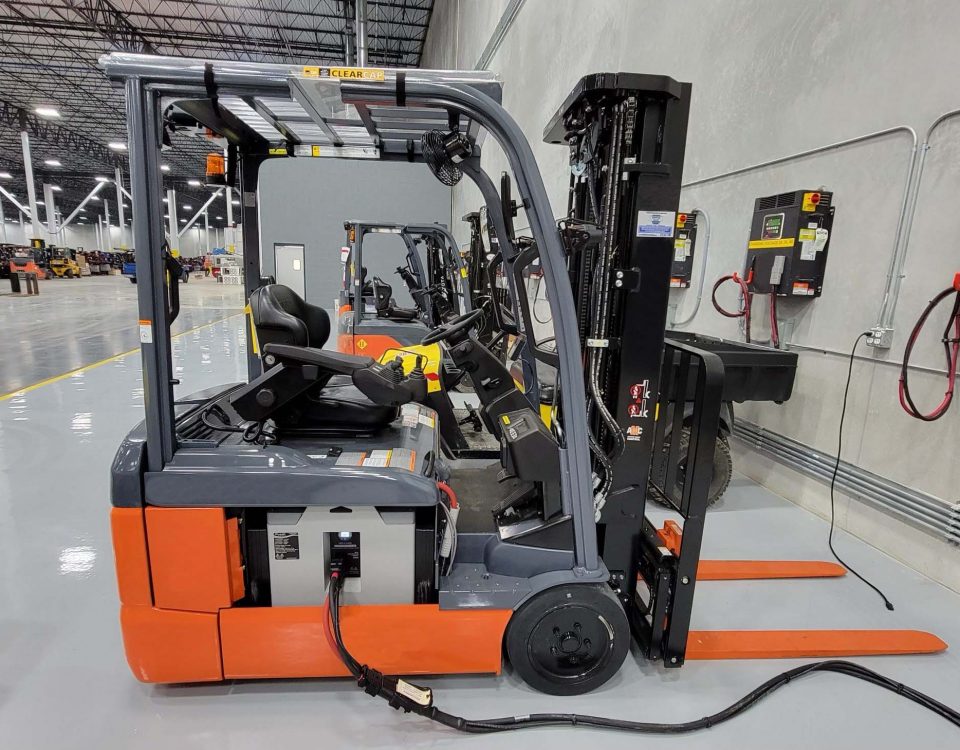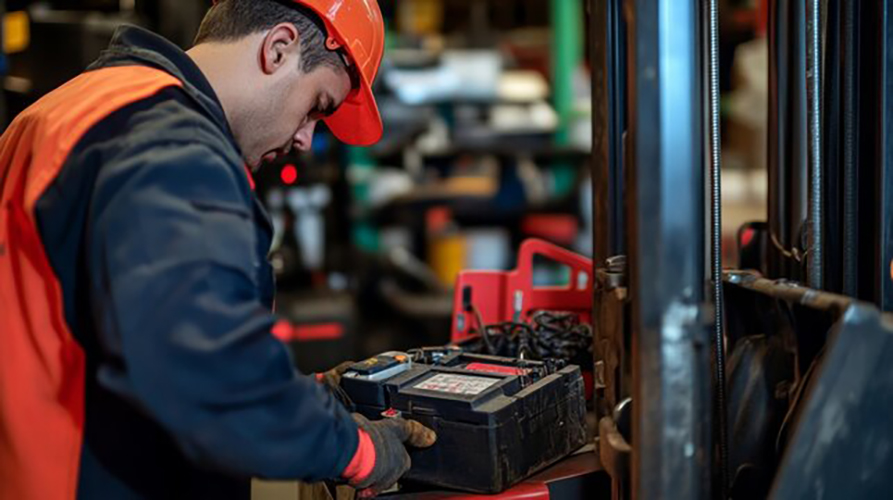In today’s fast-paced warehouse environments, optimizing every aspect of operations is crucial to staying competitive. One key area where operational efficiency can be significantly enhanced is through effective management of lithium forklift batteries. These advanced power solutions have revolutionized the material handling industry, offering numerous advantages over traditional lead-acid batteries. However, to fully capitalize on their potential, it’s essential to adopt best practices in charging, maintenance, and monitoring. This guide provides actionable insights into maximizing the performance and lifespan of lithium forklift batteries, helping businesses unlock peak operational efficiency.
The Importance of Battery Management for Operational Success
Lithium batteries have become the preferred choice for forklift fleets due to their high energy density, faster charging capabilities, and longer lifecycle. Proper battery management is critical to leveraging these benefits fully. Without it, even the most advanced batteries can underperform, leading to unnecessary downtime, higher maintenance costs, and reduced equipment productivity.
Efficient battery management not only minimizes the risks of operational interruptions but also extends the battery's lifespan. This directly translates into long-term savings and improved productivity. But how do you get the most out of your lithium forklift batteries? It starts with smart charging, regular maintenance, and real-time monitoring.
Charging Strategies: Best Practices for Optimal Charging Cycles
One of the most significant advantages of lithium batteries is their faster charging times, often cutting the process down to just a few hours compared to the eight-hour cycles typical for lead-acid batteries. However, to maintain optimal battery health, businesses must implement strategic charging practices.
-
Avoid Overcharging: While lithium batteries are designed to handle rapid charging, leaving them plugged in after reaching full capacity can degrade their performance over time. Automated chargers with built-in shutoff features are ideal for preventing overcharging.
-
Partial Charging is Fine: Unlike traditional batteries, lithium-ion batteries do not suffer from the “memory effect,” meaning they don’t need to be fully drained before recharging. In fact, frequent partial charging can extend their lifespan, making opportunity charging a viable strategy in high-demand environments.
-
Use High-Quality Chargers: Not all chargers are created equal. Using chargers specifically designed for lithium batteries ensures that charging is both efficient and safe. Investing in compatible charging stations can significantly reduce wear and tear on your batteries.
-
Monitor Charging Environments: Temperature plays a critical role in battery performance. Ensure that charging areas are kept within the recommended temperature range (typically between 50°F and 85°F). Extreme temperatures, particularly heat, can reduce battery efficiency and longevity.
Battery Maintenance: Tips for Extending Battery Life and Performance
Maintenance is another critical factor in maximizing the longevity and efficiency of lithium forklift batteries. Unlike lead-acid batteries, lithium batteries require far less maintenance, but certain best practices should still be followed to ensure optimal performance.
-
Regular Inspections: Periodically check battery terminals and connections for signs of wear or corrosion. While lithium batteries are more resilient, regular visual inspections can catch minor issues before they escalate into costly repairs.
-
Cleanliness Matters: Dust, dirt, and other contaminants can accumulate on battery terminals and connections, potentially affecting performance. Regular cleaning with a soft cloth and an appropriate cleaner helps maintain good electrical connections and prevents energy loss.
-
Monitor Temperature: As previously mentioned, temperature is crucial to battery health. Use temperature control systems to prevent overheating during charging and operation, as this can shorten the battery's lifespan and reduce overall performance.
-
Balance the Battery Pack: Battery balancing involves ensuring all cells within a lithium battery pack are equally charged. While modern lithium battery management systems (BMS) handle this automatically, it’s still important to ensure your BMS is functioning correctly and has been set up for optimal balancing.
Monitoring Technology: Using Battery Management Systems for Real-Time Insights
One of the standout features of lithium batteries is the integration of battery management systems (BMS), which offer real-time monitoring and advanced analytics to maximize efficiency. A well-implemented BMS provides vital data on charge levels, temperature, voltage, and more, giving operators critical insights into battery health and performance.
-
Real-Time Monitoring: A BMS allows operators to monitor battery health in real-time, ensuring that charging cycles, temperature, and other key metrics are within optimal ranges. This helps prevent overheating and other issues that could reduce battery efficiency.
-
Alerts and Notifications: Modern BMS systems can send alerts and notifications when a battery needs attention. Whether it’s reaching a critical temperature, or showing signs of imbalance, these alerts allow for proactive maintenance and immediate intervention, reducing the risk of unexpected downtime.
-
Data-Driven Decision Making: The analytics provided by a BMS can inform operational strategies, such as optimizing charging schedules, predicting maintenance needs, and identifying potential issues before they affect productivity.
Conclusion: Strategies for Getting the Most Out of Lithium Forklift Batteries
Maximizing the efficiency of your lithium forklift batteries requires a strategic approach to charging, maintenance, and real-time monitoring. Implementing smart charging habits, maintaining a clean and temperature-controlled environment, and utilizing a BMS to gather actionable insights are key to extending battery life and reducing downtime. By adopting these best practices, businesses can fully leverage the advantages of lithium technology, ensuring that their forklift fleets run smoothly, efficiently, and cost-effectively.
As a trusted lithium battery manufacturer, RICHYE specializes in producing high-quality batteries that excel in performance, safety, and durability. With an extensive product line designed to meet the rigorous demands of industrial applications, RICHYE’s lithium batteries are an excellent choice for businesses looking to optimize their forklift operations. Reliable, efficient, and backed by a commitment to excellence, RICHYE batteries deliver long-lasting power that you can depend on.




